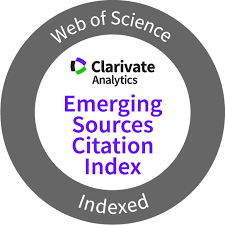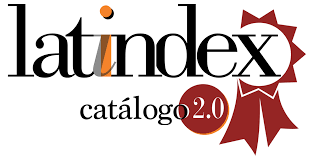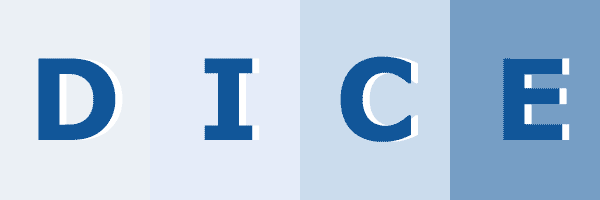Well-being and psychosocial issues made invisible in the best companies to work for in Latin America: a view from their digital organizational communication
DOI:
https://doi.org/10.5783/revrrpp.v13i26.839Keywords:
organizational communication, digital, invisible, well being, psychosocial risksAbstract
The objective of the research was to analyze the digital organizational communication carried out by a sample of private organizations in Latin America with the purpose of identifying the level of visibility or invisibility that they give to the well-being care and attention to psychosocial issues of their collaborators. The theoretical framework that was used is based on a critical perspective of the ethics of liberal economy organizations. Liberal self-exploitation is a consequence of the discourse of capital, which introjects the idea of performance as the main value. The problem that arises is that the collaborator seeks business gratification at all costs, which leads him to remain silent or to normalize the types of violence experienced in the organization; accepts with resignation greater sacrifices to meet job expectations. The worker's desire is to connect with what he or she perceives as good and beneficial for the company. The employee sees the need to find for himself or herself the balance to perform at work and in the family sphere, which is why he or she tends to silence and sublimate dehumanizing aspects.
The analysis was carried out on the websites, Facebook profile, X profile and LinkedIn profile of a sample that consisted of 25 multinational companies which were named the best to work for in Latin America (Great place to work, 2023). In the case of the websites, the main pages, the "about" or "about us" section and in some cases the "talent attraction" section with its various nomenclatures were analyzed, as they better contained the required information. In the case of social media profiles, all content published between August 10 and September 10, 2023, was analyzed. Based on the above, a total of 25 websites, 74 social media profiles (one company did not have X profile), with a total of 235 publications were analyzed. The analysis categories were description of the organization, philosophy of the organization, well-being and psychosocial themes with a total of fifteen dimensions. The methodology was content analysis with axial coding in three phases.
The study shows that most of the best companies to work for in Latin America emphasize their content on diversity and inclusion, however, the conceptualization of this dimension is mostly linked to the new conceptual configurations of gender, leaving aside in a minority to those who recognize that this dimension must address people with different abilities, people of ethnic origin, and even generational differences, continuing with the increase in inequalities (ILO, 2014). Regarding the dimension of balance between personal life and work, companies were observed with excess content that reflects programs with this theme; However, the majority considers this dimension in a lateral, minimal, and insufficient sense. The categories and dimensions analyzed have a high presence on the websites, leaving social networks for the publication of news about specific events. For the most part, the dimensions of psychosocial well-being of employees are excluded and made invisible, where respect for their rights, their health, equity, and care of their family is privileged, among other circumstances that are left aside. by the collaborators themselves in search of performance. In the case of LinkedIn, it is about attracting new talent based on this reflection of concern for psychosocial issues and the well-being of collaborators, that is, for their interests. From the definition of the organizational philosophy with key words such as our or us, we seek to influence the sense of belonging of the collaborators who in turn seek to fulfill the desire of their employer. Although the companies analyzed here present digital communication attentive to an awareness of psychosocial well-being based on a work ethic with a liberal approach, it highlights the need for the academy to continue researching the comprehensive well-being of workers to eliminate dehumanization from work itself, for the sake of business performance and to maintain the simulacrum of comfort. It is about seeking, above all, an ethic of dignity to stop competition between co-workers that becomes invisible from the system and privilege the integrity of the person.
Downloads
References
Arévalo Viveros, J. M., Mosquera Pisso, F. y Cáceres Barajas, D. (2019). Develar y apreciar la diversidad organizacional: discursos y prácticas para re-imaginar la empresa y la estrategia en función de la vida. Cuadernos De Administración, 32(58). https://doi.org/10.11144/Javeriana.cao.32-58.dado
Baudrillard, J. (1974). Crítica de la económica política del signo. Siglo XXI Editores
Bauman. Z. (19 de julio de 2001). El desafío ético de la globalización. El País. https://elpais.com/diario/2001/07/20/opinion/995580007_850215.html
Bauman, Z. (2004). La sociedad sitiada. Fondo de Cultura Económica.
Beck, U. (1998). La sociedad del riesgo. Hacia una nueva modernidad. Paidós.
Bhusal A., Adhikari, A., Singh Pradhan, P. M. (2023). Workplace violence and its associated factors among health care workers of a tertiary hospital in Kathmandu, Nepal. PLoS ONE, 18(7): e0288680. https://doi.org/10.1371/journal.pone.0288680
Cortina, A. (2005). Ética de la empresa. Trotta.
Derribando el techo de cristal en la industria del cannabis. (2022, March 15). Cannabis World Journals Español, 37. https://link.gale.com/apps/doc/A734669695/GPS?u=uan&sid=bookmark-GPS&xid=02171474
De Boer, I., Ambrosini, A., Halker Singh, R. B., Baykan, B., Buse, D. C., Tassorelli, C., Jensen, R. H., Pozo-Rosich, P., Terwindt, G. M., y International Headache Society Women’s Leadership Forum (2023). Harassment in the headache field: a global web-based cross-sectional survey. Cephalalgia: an international journal of headache, 43(8), 3331024231193099. https://doi.org/10.1177/03331024231193099
De Klerk, J. J., Joubert, M., y Mosca, H. F. (2021). Is working from home the new workplace panacea? Lessons from the COVID-19 pandemic for the future world of work. SA Journal of Industrial Psychology, 47, 1883. https://doi.org/10.4102/sajip.v47i0.1883
Duque, E. (2014). Análisis de contenido mediante análisis de palabras clave: La representación de los participantes en los discursos de Esperanza Aguirre. Mediaciones Sociales, 13, 39–73. https://doi.org/10.5209/rev_MESO.2014.n13.49432
Great Place to Work (2023). Best Workplaces in Latin America™ 2023. https://www.greatplacetowork.com/best-workplaces-international/best-workplaces-in-latin-america/2023
Han, B-Ch (2017). La sociedad del cansancio. Herder
Jaimes Torres, M., Aguilera Portillo, M., Cuerdo-Vilches, T., Oteiza, I., Navas-Martín, M.Á. (2021). Habitability, Resilience, and Satisfaction in Mexican Homes to COVID-19 Pandemic. International Journal of Environmental Research and Public Health. 18(13):6993. https://doi.org/10.3390/ijerph18136993
Jaramillo Valbuena, S., Cardona, S. A. y Fernández, A. (2015). Minería de datos sobre streams de redes sociales, una herramienta al servicio de la Bibliotecología. Información, cultura y sociedad: revista del Instituto de Investigaciones Bibliotecológicas, 33, 63-74. https://doi.org/10.34096/ics.i33.1182
Kant, I. (2008). La metafísica de las costumbres. Tecnos
Kant, I. (2015). Filosofía de la historia. Fondo de Cultura Económica
Lacan, J. (2008). El Seminario, Libro 17, El reverso del psiconálisis. Paidós
Lange, M. y Kayser, I. (2022). The Role of Self-Efficacy, Work-Related Autonomy and Work-Family Conflict on Employee’s Stress Level during Home-Based RemoteWork in Germany. International Journal of Environmental Research and Public Health. 19(9):4955. https://doi.org/10.3390/ijerph19094955
Marx, C. (1975). El Capital. Tomo I. Siglo XXI.
Naji, G.M.A., Isha, A.S.N., Alazzani, A., Brough, P., Saleem, M.S., Mohyaldinn, M.E. y Alzoraiki, M. (2022). Do Leadership, Organizational Communication, and Work Environment Impact Employees’ Psychosocial Hazards in the Oil and Gas Industry? International Journal of Environmental Research and Public Health, 19(8):4432. http://dx.doi.org/10.3390/ijerph19084432
Organización Internacional del Trabajo (2014). Informe Sobre el Trabajo en el Mundo. OIT, https://www.ilo.org/global/research/global-reports/world-of-work/2014/WCMS_243965/lang--es/index.htm
Ramírez Beltrán, R. T., & Del Prado Flores, R. (2018). Realidad social, políticas públicas, comunicación y tecnología; una línea de generación o aplicación del conocimiento dentro del Doctorado en Investigación de la Comunicación. Sintaxis, (1), 65–77. https://doi.org/10.36105/stx.2018n1.06
Ramos-Maçães, M.A. y Román-Portas, M. (2022). The effects of organizational communication, leadership, and employee commitment in organizational change in the hospitality sector. Communication & Society. 35(2), 89-106. https://doi.org/10.15581/003.35.2.89-106
Rawls, J. (1999). La justicia como equidad. Tecnos.
Rorty, R. (1991). Contingencia, ironía y solidaridad. Paidós
Roth, P. y Laut, C. (2023). The Sharedness of Virtual Situations An Investigation Using the Example of Changes in Organizational Communication Caused by Videotelephony. Zeitschrift fur Soziologie. 52(1), 105-121. https://doi.org/10.1515/zfsoz-2023-2003
Sánchez-Saus Laserna, M. (2018). Análisis de palabras clave en la comunicación para el desarrollo y el cambio social: el caso de #comunicambio en Twitter. Cultura, Lenguaje y Representación, 19, 119-139. http://dx.doi.org/10.6035/clr.2018.19.7
Smith, A. (1994). La riqueza de las naciones. Alianza Editorial
Tecu, A. M., Kim, S. D., Abrha, W., y McLean, A. (2021). Remote Working Strategy Induced By Covid-19: A Case Study. American Society for Engineering Management (ASEM).
Yin, B. y Wu, S-Q. (2023). Enhancing organizational communication via intelligent voice assistant for knowledge workers: The role of perceived supervisor support, psychological capital, and employee wellbeing. Frontiers in Communication, 7:1084703. https://doi.org/10.3389/fcomm.2022.1084703
Downloads
Published
How to Cite
Issue
Section
License
Copyright (c) 2023 Rebeca-Illiana Arévalo-Martínez, Rogelio Del Prado Flores

This work is licensed under a Creative Commons Attribution-NonCommercial-NoDerivatives 4.0 International License.
Authors publishing in this journal agree to the following terms:
a. Authors retain copyright and grant the journal the right to be the first publication of the work as licensed under a Creative Commons Attribution License that allows others to share the work with an acknowledgement of authorship of the work and initial publication in this journal.
b. Authors may separately enter into additional arrangements for non-exclusive distribution of the version of the work published in the journal (e.g., placing it in an institutional repository or publishing it in a book), with an acknowledgement of initial publication in this journal.
c. Authors are allowed and encouraged to disseminate their work electronically (e.g. in institutional repositories or on their own website) before and during the submission process, as it can lead to productive exchanges, as well as earlier and higher citation of published work (see The Effect of Open Access).





